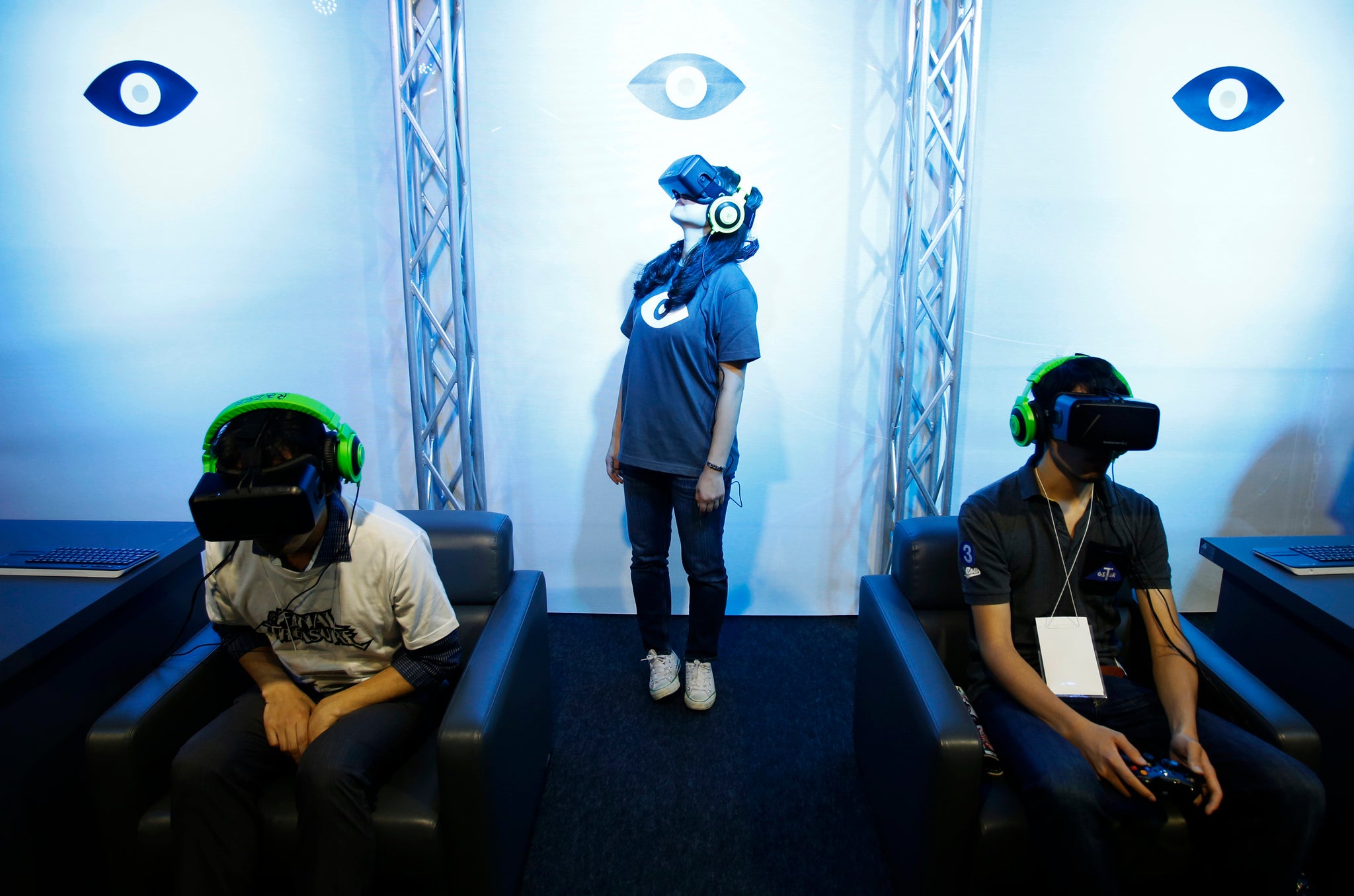Man to live as somebody else for 28 days in virtual reality experiment
Scientists have voiced concern about art project that will see man recruit avatar

A London man is to live the life of another person for 28 days, in an experiment that he hopes will give him insight into the nature of human existence but which experts have called potentially ‘extremely disturbing’.
Mark Farid is set to recruit an ‘avatar’ or ‘other, who will video his whole life for 28 days, and watch all of that video through an Oculus Rift, while people feed him all of the food that his participant eats.
Farid hopes that the experiment will allow him some insight into the debate over whether it is nature or nurture that causes a person to be how they are, according to Vice. By living as somebody else, Farid hopes to see whether he will start thinking like them, too.
The 28 day period was chosen because of a common (though debunked) idea that new habits take 21 days to form, according to the Verge. Earlier in 2014, Farid ran a 24 hour test run of the project, called ‘Alone Together’, at the Arebyte Gallery in London.
As in that run-through, the only contact Farid will have is an hour’s consultation with a psychologist, who will watch him in silence, and the volunteers who will help feed him the food that his surrogate eats.
The other participant’s life will be recorded through a secret camera mounted in his glasses. Participants won’t be able to tell anybody but their partner that they are taking part.
Applications to be the ‘other’ — whose eyes Farid will see through — open on November 28. Farid requires that the participant is a male, and in a relationship and living with someone who also agrees to take part.
He also asks that potential participants consider whether they are comfortable with someone filming and watching a month of their whole life, and with that footage being used in a documentary. The successful participant will be given time with a psychologist before the task, to ensure he is up for it, and after.
The project will be funded through a Kickstarter that is set to launch soon.
Potential ‘others’ will go through a process beginning with a questionnaire and ending in a 24 hour test run and final interview. They will be selected by Farid’s psychologist, one of his friends and the two other people involved in the project, among others.
That psychologist has been studying Farid for the last year, and will do the same after it finishes, though will stay impartial through the experiment.
Simon Baron-Cohen, professor of psychology and cognitive neuroscience at Cambridge University, said that the outcomes of the experiment could include increased empathy, distorted perceptions and delusions, or that the brain could adapt surprisingly quickly to living as somebody else.
Professor Barbara Sahakian, a professor of clinical neuropsychology at Cambridge’s department of psychiatry as well as a member of the Medical Research Council, said: “I am concerned about how such a long project which involves voyeurism on the part of Mark and also on the part of the public in regard to Mark will affect his mental health and wellbeing.
“It could be extremely disturbing and it is unclear whether any potential damage to Mark's mental health could be repaired.”
Join our commenting forum
Join thought-provoking conversations, follow other Independent readers and see their replies
Comments
Bookmark popover
Removed from bookmarks